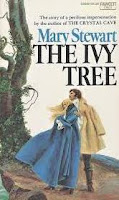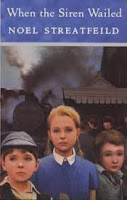I don’t remember when I first heard of the books by Elaine Mazlish and Adele Faber. Perhaps it was only fifteen or twenty years ago, but I feel as if their principles have always been tucked away in my consciousness. The best-known of their books is probably ‘How to talk so kids will listen, and listen so kids will talk’. They wrote some variations on that book, too: for instance, one related to teachers and school children, and one is specifically for dealing with teenagers. ‘Siblings without rivalry’ is also well-known and highly regarded in the circles I was part of as a parent.
So I’m not sure why I had never heard of ‘Liberated Parents, Liberated Children’. I came across the title while browsing the AwesomeBooks site recently. When I make an order, I like to find at least ten books, as the postage to Europe is a fixed charge. So when I saw this, in good condition, it was the work of a moment to add it to my shopping cart. My sons are adults now, and my grandchildren are currently the other side of the world. But I know from experience that these books are helpful in any kind of relationship, even if primarily intended for families with children and teenagers at home.
Unlike the other books I’ve read by these authors, this one is in semi-fictional form. That’s explained at the beginning: the authors wanted to described some of the growth they went through, while learning about principles of dealing constructively with children, and the new styles of speaking and relating that they had learned on a course. But they didn’t want to embarrass anyone, or reveal family secrets. So they invented a family, somewhat of a blend of their own families, and a circle of women who met regularly to learn and talk about progress dealing with communication and anger problems in the home. Each incident described was based on something in reality, but without any individual being identifiable.
Not everyone would like the format of ‘creative non-fiction’ (as it’s called elsewhere) but I found this book very readable. It didn’t exactly teach me anything new; the principles are those from the authors’ better-known books, but instead of being teaching guides with explanations, diagrams and lists, they are written in the form of discussions, experiences, and family struggles.
Jan is the name of the fictional narrator. She is married, and has three children: two boys and a girl. One of her problems is that her sons fight a lot, with the older one becoming very angry, sometimes bullying his brother. Jan tends to sympathise with her youngest, remembering her own life as a younger sibling. But she comes to realise, over the course of the book, that this helps nobody. Instead she learns new ways of talking to both sons, enabling them to come up with their own solutions to their differences.
Other situations covered, in other families, include children forgetting things for school regularly, making excessive demands on parents, yelling and making mess, and forgetting to feed a family pet. The motivator of the group the women attend is a calm, friendly presence offering suggestions and positive feedback, mirroring his philosophies in his responses to the women
What I particularly liked is that, rather than everyone trying the principles and living happily ever after, there are stories of setbacks and failures too. There are discussions about anger, about the dangers of making someone feel guilty, and about the importance of parents taking care of their own needs as well as those of their children.
Inevitably it’s somewhat idealised, and not every difficult situation can be improved in this way. It's also American; not every situation would necessarily apply elsewhere. But the principles still hold. It is not about permissive parenting, nor is it about parents being doormats, giving into their children’s every whim.
For any parents - or grandparents, or anyone in authority, or indeed anyone struggling to communicate in any relationship - I would recommend this very highly, as a gentle guide to non-punitive non-coercive parenting. It’s well-balanced, well-presented, and, in my view, very well worth reading.
Review copyright 2017 Sue's Book Reviews







